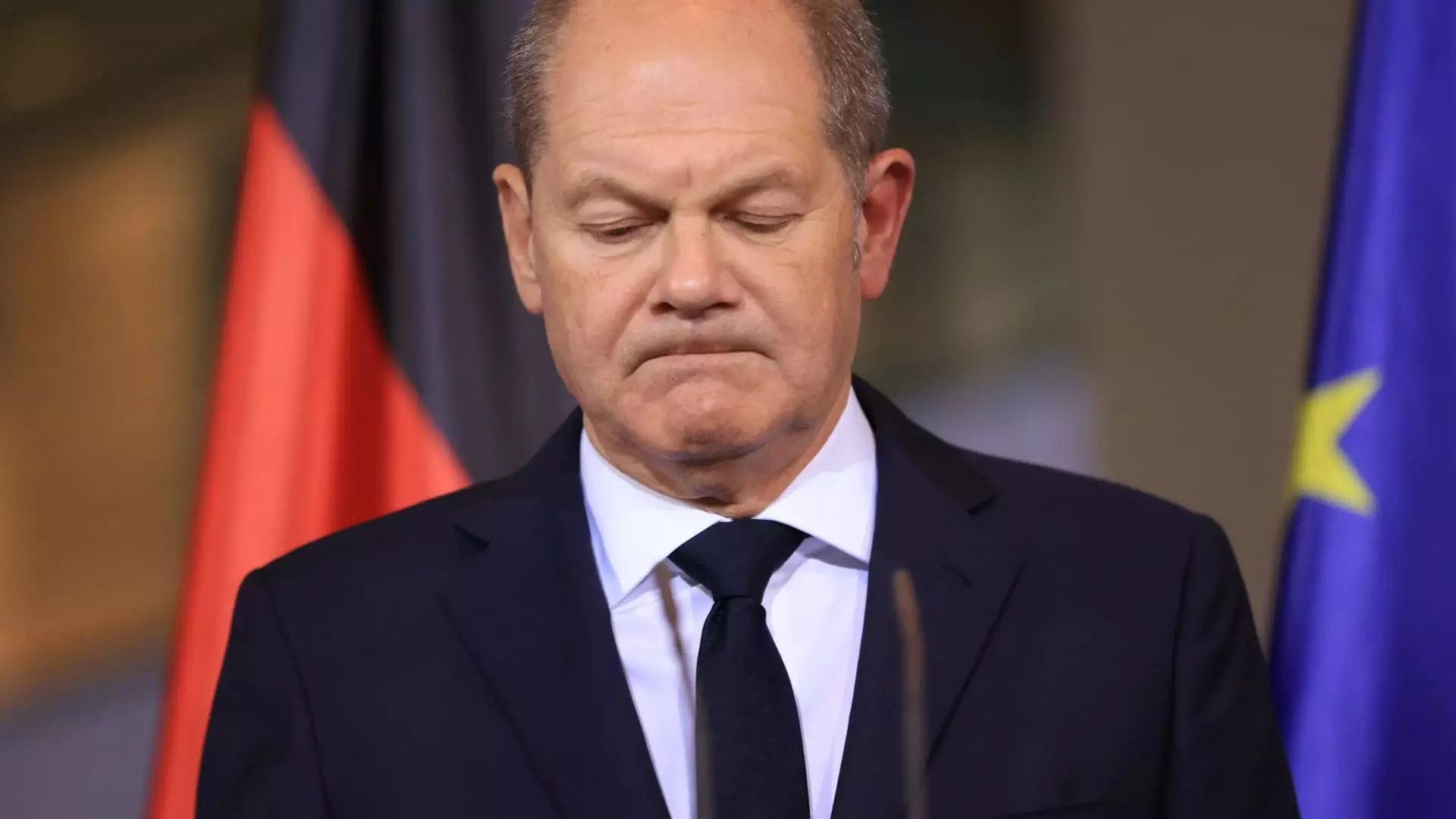The election of Donald Trump as President of the United States has the potential to unleash significant challenges for the already fragile German economy. Following a close brush with recession, Germany’s economic landscape is troubled, having recorded a modest GDP growth of just 0.2% in the third quarter after a previous contraction of 0.3%. This minor uptick, however, offers little solace as projections from the German Economy Ministry indicate an impending contraction rather than growth for the year. The broad array of economic indicators continues to paint a bleak picture of the nation’s financial health.
Subpar Economic Indicators: A Sign of Strain
Recent economic metrics reveal that Germany’s business environment is decidedly uninspiring. For instance, the Composite Purchasing Managers’ Index (PMI) saw only a slight increase in October, yet it remains firmly in contraction territory, underscoring persistent weaknesses in the business sector. This sluggishness stands in stark contrast to prior expectations of economic recovery, prompting serious concerns about the sustainability of growth in the future.
As Trump prepares to take office, commentators like Moritz Schularick, president of the Kiel Institute for the World Economy, warn that Germany may be on the brink of its most challenging economic period since the nation’s unification. Trump’s anticipated economic approaches are expected to compound existing domestic struggles while introducing complex foreign trade and security issues that the German economy is ill-equipped to handle. Such an unsteady backdrop raises alarms for both German policymakers and businesses.
Germany’s economy is heavily export-oriented, with the United States emerging as an increasingly significant trading partner. In the first half of 2023, the U.S. surpassed China to become Germany’s second-largest trading partner, with nearly 10% of German exports destined for American consumers. However, Trump’s historical inclination towards imposing extensive tariffs—potentially as high as 20%—on imports raises the stakes for German exporters, placing their revenue streams in jeopardy. This possibility, according to Germany’s ifo economic institute, could lead to significant financial losses, projecting damages to German exports in the realm of EUR 33 billion.
The automobile and chemical industries, which have long been the cornerstones of Germany’s manufacturing sector, stand out as particularly vulnerable to these potential tariffs. If U.S. trade policy veers towards increased protectionism under Trump’s leadership, the implications could be profoundly negative for the German economy and its key industries.
In light of these looming challenges, there is an urgent need for Germany and the European Union to adopt proactive measures. Lisandra Flach, director at the ifo Center for International Economics, emphasizes the necessity for deeper integration within the EU’s services market, alongside credible retaliation strategies against the U.S. Engaging in strategic planning and strengthening economic unity among EU members may prove essential in countering adverse impacts from potential U.S. trade policies.
As the U.S. appears poised to retreat from its role as a proponent of global cooperation, the dependency on sustained foreign trade partnerships becomes even more pressing for Germany. The time for introspection and strategic realignment is now; neglecting these measures could leave the German economy vulnerable to shocks from external policy changes.
Domestic Political Turmoil Complicates the Situation
The uncertainty is further compounded by domestic instability within Germany. The recent dismissal of Finance Minister Christian Lindner by Chancellor Olaf Scholz signifies fractures within the ruling coalition, introducing additional uncertainty into the nation’s economic strategy. The political landscape could stall or complicate the swift response necessary to address external economic pressures stemming from U.S. policy under Trump’s administration.
In a moment that called for unity, Senior German political figures—including Scholz—extended congratulations to Trump following his election victory, attempting to position Germany as a “reliable partner.” This balancing act between welcoming a new U.S. administration while also acknowledging the potential for turbulence underscores the precarious position Germany finds itself in.
As these factors converge, it becomes increasingly clear that Germany’s economic future is entering a critical period. The combination of an uncertain political climate, a sluggish economic environment, and the potential for hostile trade policies from the U.S. presents a formidable set of challenges. Moving forward, Germany must harness collaborative efforts within the EU and adopt resilient strategies to safeguard its economy against the looming specter of a turbulent transatlantic trade era. Now more than ever, effective policy responses will be essential to navigate the uncertain economic landscape ahead.

Leave a Reply